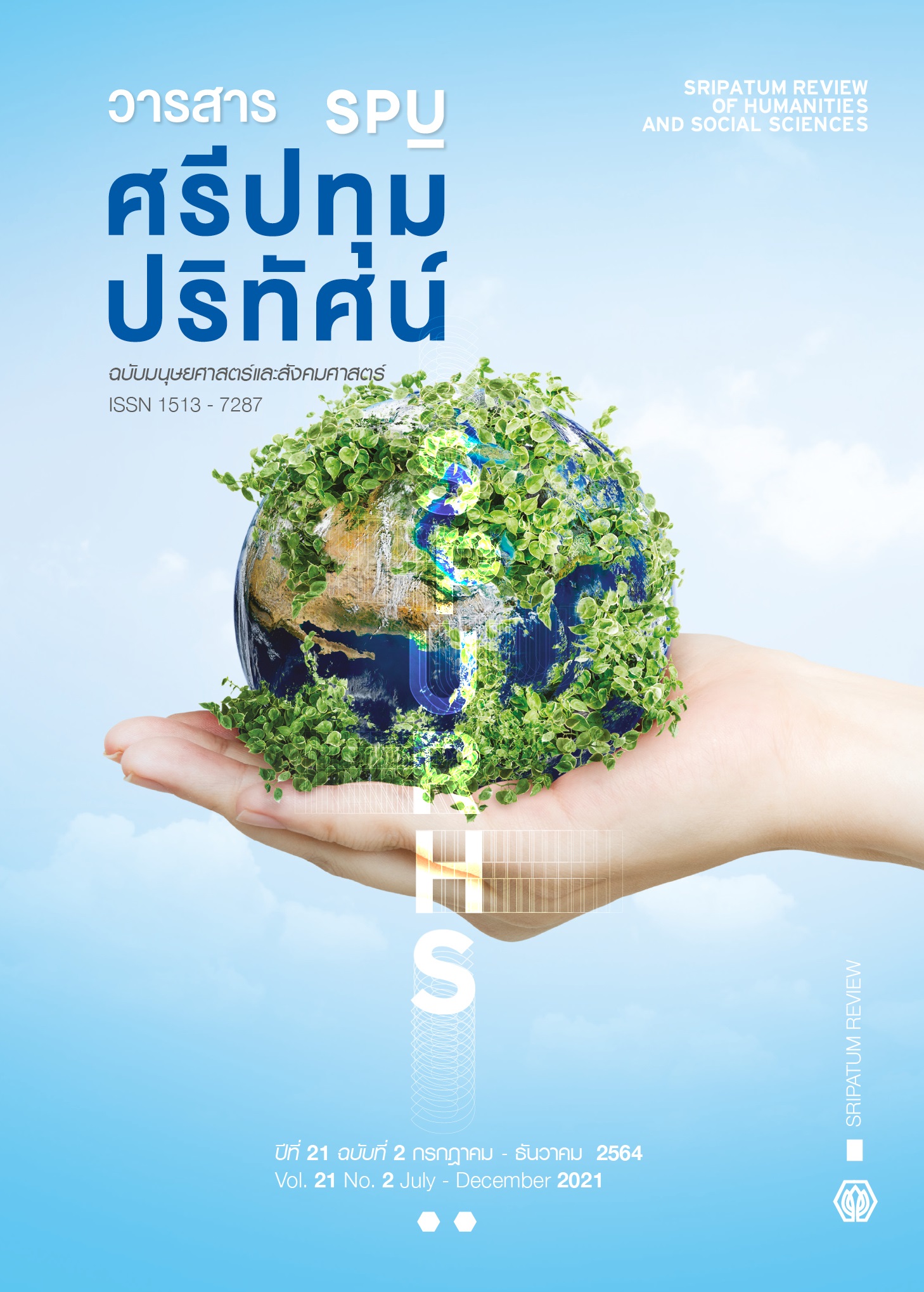Participatory Action Research in Developing of Cultural Learning Sites Related to the Production of Coffin (Prasartsop) in Rong Bua Loi Village, Wiang Chai District, Chiang Rai Province
Main Article Content
Abstract
The purposes of this participatory action research were (1) to develop the cultural learning sites related to the production of coffins (Prasat Sop) in Ban Rong Bua Loi village; and (2) to evaluate the appropriateness of cultural learning sites related to the production of coffins (Prasat Sop) in Ban Rong Bua Loi village. The data on cultural learning sites related to the production of coffins were collected from 30 research informants classified into coffin craftsmen, community leaders, and community board members. The data on appropriateness evaluation of cultural learning sites were collected from 30 learners. The tools for the study were an in-depth interview form, a focus group discussion, a community forum for panel discussion on guidelines for the development of cultural learning sites, and a scale to assess the appropriateness of cultural learning sites. The research results were as follows: (1) Ban Rong Bua Loi community was famous and well-known for people in Chiang Rai province as the village that had been making coffins (Prasat Sop) for more than 40 years; so it had acquired the body of knowledge on coffin making, coffin decoration and coffin shapes that was its identity; (2) Ban Rong Bua Loi cultural learning sites related to the production of coffins comprised four learning bases, namely, the learning base on coffins (Prasat Sop), the learning based on making perforated decorations, the learning base on making the coffin structure, and the learning based on coffin decoration; and (3) the result of assessment of appropriateness of the cultural learning sites related to the production of coffins (Prasat Sop) by the learners showed that the cultural learning sites were appropriate at the high level.
Article Details
1. กองบรรณาธิการสงวนสิทธิ์ในการพิจารณาและตัดสินการตีพิมพ์บทความในวารสาร
2. บทความทุกเรื่องจะได้รับการตรวจสอบทางวิชาการโดยผู้ทรงคุณวุฒิ แต่ข้อความและเนื้อหาในบทความที่ตีพิมพ์เป็นความรับผิดชอบของผู้เขียนแต่เพียงผู้เดียว มิใช่ความคิดเห็นและความรับผิดชอบของมหาวิทยาลัยศรีปทุม
3. การคัดลอกอ้างอิงต้องดำเนินการตามการปฏิบัติในหมู่นักวิชาการโดยทั่วไป และสอดคล้องกับกฎหมายที่เกี่ยวข้อง
References
Chaikul, W. (2003). Cultural and Social Context of Prasart Sop Making in Chiang Mai Province. Thesis of the Degree of Master of Education Program in Vocational Education. Chiang Mai: Chiang Mai University. (in Thai)
Cittasamvaro, P. (2010). A Study of the Concept of Cultural Belief of Corpse’s Castle Making of Buddhist People in Lanna. Thesis of the Degree of Master of Arts Program in Buddhist Studies. Bangkok: Mahachulalongkornrajavidyalaya University. (in Thai)
Community Development Department.(2008). Community Learning Center Operation Manual. Bangkok: Suphatin Printing Group. (in Thai)
Intawong, O. (2014). The Management for Efficiency Cultural Learning and Tourism of Wiang Kum Kam, Chiang Mai Province. Thesis of the Degree of Master of Arts Program in Art and Culture Management. Chiang Mai: Chiang Mai University. (in Thai)
Khattiya, P. (November 3, 2019). Rong Bua Loi's Village Headman. interview.
Phaetlakfa, C. (2013). Participation of Urban Community in Developing Arts and Culture Learning Center: Case Study, Lad Prao Community. Institute of Culture and Arts Journal, 14(2), 35-48. (in Thai)
Phanmool, J. and Phopunprom, P. (2020). Multicultural Activities to Promote Cultural Tourism in Ko Kret, Nonthaburi Province. Area Based Development Research Journal, 12 (4), 307-318. (in Thai)
Rittikupt, W. (2018). Community-Based Learning: Effective Pedagogy Strategies for Teachers in the 21st Century. Graduate School Journal, 11(3), 179-191. (in Thai)
Sitikarn, B., Sereewichayaswat, W. and Baedcharoen, I. (2016). Potentiality/Readiness of Transboundary Tourism System on R3A and R3B Responding to ASEAN Community. Bangkok: National Research Council of Thailand (NRCT) and The Thailand Research Fund (TRF). (In Thai)
Somjai, A. (1998). Lanna Northern Cemetery Rite, Hussadeelink bird-like coffin-stuffed castle to Coffin-Used Wood. Chiang Mai: Institute for Social Research, Chiang Mai University. (in Thai)
Somsakul, P. (2016). Community Learning Resources Management of Museums and Temples: A Case Study of Muang District, Lopburi Province. Journal of Cultural Approach, 17(32), 31-43. (in Thai)
Thongsard, A. (2019). Community's Awareness of Songkhla Old Town Heritage Value among the Youth Through Participatory Learning Process. Area Based Development Research Journal, 11(1), 1-21. (in Thai)
Utoomporn, N. (2018). A Management of Community Learning Resources in Sufficiency Economy to integrate for sustainable learning management in the school, Bang Phli District, Samutprakran Province. Bangkok: Dhonburi Rajaphat University. (in Thai)


